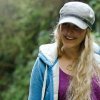Amanda F Henry
age ~45
from Bartlett, TN
- Also known as:
-
- Amanda F Woods
- Amanda F Hunter
- Amanda Hunter Woods
- Amanda F Ds
Amanda Henry Phones & Addresses
- Bartlett, TN
Resumes

Beverage/Assistant Manager At Taste Restaurant
view sourcePosition:
Beverage/Assistant Manager at Taste Restaurant
Location:
South Lake Tahoe, California
Industry:
Food & Beverages
Work:
The Cork and More
Catering
Diamond Resorts International Jul 2009 - Aug 2010
Telemarketing Manager
Catering
Diamond Resorts International Jul 2009 - Aug 2010
Telemarketing Manager
Education:
Humboldt State University
Skills:
Hospitality Management
Food & Beverage
Hospitality
Marketing
Hospitality Industry
Resorts
Hotels
Catering
Banquets
Hotel Management
Revenue Analysis
Restaurants
Menu Development
Restaurant Management
Food Service
Fine Dining
Micros
Yield Management
Front Office
Culinary Skills
Tourism
Food
Event Management
Food & Beverage
Hospitality
Marketing
Hospitality Industry
Resorts
Hotels
Catering
Banquets
Hotel Management
Revenue Analysis
Restaurants
Menu Development
Restaurant Management
Food Service
Fine Dining
Micros
Yield Management
Front Office
Culinary Skills
Tourism
Food
Event Management

Financial Service Representative At Canandaigua National Bank
view sourcePosition:
Financial Service Representative at Canandaigua National Bank
Location:
Shortsville, New York
Industry:
Banking
Work:
Canandaigua National Bank since Sep 2005
Financial Service Representative
Bob and Ruth's 2000 - 2005
Server
Financial Service Representative
Bob and Ruth's 2000 - 2005
Server
Skills:
Banking
Consumer Lending
Financial Services
Finance
Cash Management
Teller Operations
Retail Banking
Loans
Leadership
Time Management
Consumer Lending
Financial Services
Finance
Cash Management
Teller Operations
Retail Banking
Loans
Leadership
Time Management

Customer Service At Greiner Bio One Na
view sourcePosition:
Customer Service Team Leader at Greiner Bio One NA
Location:
Monroe, North Carolina
Industry:
Consumer Services
Work:
Greiner Bio One NA since May 2006
Customer Service Team Leader
Customer Service Team Leader
Education:
Montreat College 2000 - 2002
Bachelor of Business Administration (BBA), Business
Bachelor of Business Administration (BBA), Business
Skills:
Sales Support
Team Building
Performance Management
Sales Operations
Team Building
Performance Management
Sales Operations

Amanda Henry Southaven, MS
view sourceWork:
Glazer's of Tennessee/ Star Distributors
Dec 2011 to 2000
Warehouse Worker Victor L. Robilio, Inc.
Memphis, TN
Oct 2010 to Dec 2011
Warehouse Worker Progressive Physicians Practice
Southaven, MS
Aug 2009 to Oct 2009
Externship Days Inn
Southaven, MS
Mar 2009 to Aug 2009
Housekeeper ASAP Staffing
Southaven, MS
Aug 2008 to Mar 2009
Temporary Employee Wendy's
Southaven, MS
Sep 2004 to Jul 2006
Cashier Days Inn and Suites
Senatobia, MS
Aug 2003 to Dec 2004
Housekeeper Aluminum Extrusions, Inc
Senatobia, MS
Jul 1999 to Jul 2003
Manufacturing Engineer
Dec 2011 to 2000
Warehouse Worker Victor L. Robilio, Inc.
Memphis, TN
Oct 2010 to Dec 2011
Warehouse Worker Progressive Physicians Practice
Southaven, MS
Aug 2009 to Oct 2009
Externship Days Inn
Southaven, MS
Mar 2009 to Aug 2009
Housekeeper ASAP Staffing
Southaven, MS
Aug 2008 to Mar 2009
Temporary Employee Wendy's
Southaven, MS
Sep 2004 to Jul 2006
Cashier Days Inn and Suites
Senatobia, MS
Aug 2003 to Dec 2004
Housekeeper Aluminum Extrusions, Inc
Senatobia, MS
Jul 1999 to Jul 2003
Manufacturing Engineer
Education:
Delta Technical College
Horn Lake, MS
Oct 2009
Diploma in Medical Assisting Halls High School
Halls, TN
May 1998
High School Diploma
Horn Lake, MS
Oct 2009
Diploma in Medical Assisting Halls High School
Halls, TN
May 1998
High School Diploma

Amanda Henry Olive Branch, MS
view sourceWork:
Family Physician's Group
Medical assistant /diagnostic scheduling /lab tech windstream
Harrison, AR
May 2011 to Sep 2011
Customer Service Rep Southeast Ark College
Pine Bluff, AR
Mar 2005 to Dec 2005
Administrative Assistant
Medical assistant /diagnostic scheduling /lab tech windstream
Harrison, AR
May 2011 to Sep 2011
Customer Service Rep Southeast Ark College
Pine Bluff, AR
Mar 2005 to Dec 2005
Administrative Assistant
Education:
Grantham University
2014 to 2015
Medical office and billing Concorde Career College
Memphis, TN
2013 to 2013
CMA in Medical Assisting
2014 to 2015
Medical office and billing Concorde Career College
Memphis, TN
2013 to 2013
CMA in Medical Assisting
Skills:
I have computer and customer service skills, Certified in BLS CPR, ECG, Injections, Phlebotomy, Patient care and triage.

Amanda Henry
view source
Amanda Henry
view sourceMedicine Doctors

Amanda Henry
view sourceSpecialties:
Family Medicine
Work:
Hometown Urgent Care
245 W Ctr Ave STE 1, Portage, MI 49024
2693232450 (phone), 2693232455 (fax)
Hometown Urgent Care
1634 Gull Rd, Kalamazoo, MI 49048
2699032835 (phone), 2699032838 (fax)
245 W Ctr Ave STE 1, Portage, MI 49024
2693232450 (phone), 2693232455 (fax)
Hometown Urgent Care
1634 Gull Rd, Kalamazoo, MI 49048
2699032835 (phone), 2699032838 (fax)
Languages:
English
Description:
Dr. Henry works in Portage, MI and 1 other location and specializes in Family Medicine.
License Records
Amanda Marie Henry
License #:
014825-22 - Expired
Category:
Nursing
Issued Date:
Oct 9, 2008
Expiration Date:
Mar 25, 2010
Type:
Licensed Practical Nurse
Amanda Jolene Henry
License #:
70621 - Active
Category:
Nursing Support
Issued Date:
Jul 12, 2012
Effective Date:
Jul 12, 2012
Expiration Date:
Jul 12, 2018
Type:
Medication Aide - 40 Hour
Amanda Jolene Henry
License #:
106780 - Expired
Category:
Nursing Support
Issued Date:
Nov 28, 2012
Effective Date:
Nov 28, 2012
Type:
Nurse Aide
Amanda J Henry
License #:
83914 - Expired
Category:
Nursing Support
Issued Date:
May 28, 2008
Effective Date:
May 28, 2008
Type:
Nurse Aide
Amanda Elizabeth Henry
License #:
71107 - Expired
Category:
Nursing Support
Issued Date:
Aug 12, 2005
Effective Date:
Nov 22, 2007
Type:
Nurse Aide
Name / Title
Company / Classification
Phones & Addresses
Owner
Pleasure Painters
Painting Contractors
Painting Contractors
15 Millwood Cres, Unit B3, Kitchener, ON N2P 1X3
5197217716
5197217716
Owner
Pleasure Painters
Painting Contractors
Painting Contractors
5197217716
Sales Director
Cwi Beale Street Hotel, LLC
Hotels and Motels
Hotels and Motels
175 Peabody Pl, Memphis, TN 38103
9012604000
9012604000
MAXIMUM CLEANING SERVICE LLC
Youtube
Myspace
Flickr
Plaxo

amanda henry
view sourceJacksonville, FL

Amanda Henry
view sourceOregon

amanda henry
view sourceHyde Park Methodist Church
Classmates

Amanda Prosser (Henry)
view sourceSchools:
Cascade High School Wartrace TN 1995-1999
Community:
Joseph Campbeel, John Klan

Amanda Leduc (Henry)
view sourceSchools:
Gate City High School Gate City VA 1997-2001
Community:
Lynette Briggs

Amanda Henry
view sourceSchools:
Crawford Street School Waycross GA 1977-1982, Center Junior High School Waycross GA 1982-1985
Community:
Jenny Hardy, Jeanie Vrboncic

Amanda Henry
view sourceSchools:
Arnold High School Panama City FL 1999-2003
Community:
Karen Bowers

Amanda Henry
view sourceSchools:
Broomfield High School Broomfield CO 2004-2008
Community:
Julia Mandeville, Ginni Bumgardner, Genja Bennett

Amanda Henry
view sourceSchools:
Safety Harbor Elementary School Safety Harbor FL 1990-1996, Safety Harbor Middle School Safety Harbor FL 1996-1999
Community:
Melody Huffer

Amanda Henry
view sourceSchools:
Fort Sam Houston Elementary School San Antonio TX 1984-1987, Ft. Shafter School Honolulu HI 1987-1991, Central Middle School Columbus IN 1991-1993
Community:
Michael Bullington, Randy Marcum, June Roskilly

Amanda Henry
view sourceSchools:
Indiana Academy Muncie IN 1999-2003
Googleplus

Amanda Henry
Work:
Department of Veterans Affairs - Management Analyst/ Public Affairs Officer/ Contract Specialist
Education:
Midwestern State University - English Literature
Relationship:
Single

Amanda Henry
Work:
Aerohive Networks
Education:
University of California, Santa Barbara - English
Tagline:
Run, eat, parent, work, play. not necessarily in that order, but that's the list.

Amanda Henry
Work:
Penn State
Hershey Medical Center (2001-2007)
Hershey Medical Center (2001-2007)
Education:
Middleburg High School

Amanda Henry
Work:
Afni Inc. - Web Chat Sales Consultant/ Floorwalker (2011-2013)
TSYS - Chargeback Specialist I (2013)
TSYS - Chargeback Specialist I (2013)

Amanda Henry
Work:
Western financial group and lively realty
Education:
JT foster

Amanda Henry
Work:
Amanda's Closet
About:
Hi, im amanda from amanda's closet..do browse through my blog for coolest fashion with coolest price...
Tagline:
Passion for fashion

Amanda Henry
Work:
Max Planck Institute for Evolutionary Anthropology (2011)

Amanda Henry
Work:
Sugarland Cellars (2011)

Amanda Henry Thomps
view sourceAmanda Henry Thompson

Amanda Henry Dawgiert
view source
Amanda Henry
view source
Amanda Leighann Henry
view source
Amanda Martinez Henry
view source
Amanda Nichole Henry
view source
Amanda Henry Hibberd
view source
Amanda Henry
view sourceNews

Neanderthals may have medicated with penicillin and painkillers
view source- Other researchers say it makes sense that Neanderthals would have adapted to eat a plant-rich diet if there was less opportunity to hunt animals in their local environment. To imagine otherwise would be a bit simplistic, says Amanda Henry at Leiden University in the Netherlands.
- Date: Mar 08, 2017
- Category: Health
- Source: Google

What Discovery of Oldest Human Poop Reveals About Neanderthals' Diet
view source- "Their results are confirming an idea that is still somewhat new in the field," says paleobiologist Amanda Henry of Germany's Max Planck Institute for Evolutionary Anthropology in Leipzig. But she cautions that more evidence showing that the fecal samples undoubtedly came from Neanderthals, and not
- Date: Jun 25, 2014
- Category: Sci/Tech
- Source: Google

New Light On Human Ancestor's Diet
view source- The main author is Amanda Henry of the Max Planck Institute for Evolutionary Anthropology in Germany, a specialist in dental calculus and tartar. Other specialists on the multi-disciplinary team included dental micro-wear specialists, isotopic specialists and phytolith researchers - scientists who s
- Date: Jun 28, 2012
- Category: Sci/Tech
- Source: Google

Prehuman diet included healthy dose of bark
view source- While its ancient relations opted for softer grasses and shrubs, Australopithecus sediba, an upright-walking tree climber, "included quite a large amount of hard food in its diet," anthropologist Amanda Henry said.
- Date: Jun 28, 2012
- Category: Sci/Tech
- Source: Google

Prehuman species preferred forest foods, fossils suggest
view source- An international team of scientists led by Amanda Henry of the Max Planck Institute for Evolutionary Anthropology in Leipzig, Germany, reported Wednesday the research that supported their findings. Their paper was published online by the journal Nature and will appear later in a printed edition.
- Date: Jun 27, 2012
- Category: Sci/Tech
- Source: Google

We are descended from bark chewers, 2 million-year-old fossil reveals
view source- "There is more variety in our past than we expected," said researcher Amanda Henry, a paleoanthropologist at the Max Planck Institute for Evolutionary Anthropology in Leipzig, Germany. "We're seeing more variation among the diets and behaviors of early hominins than we'd previously seen."
- Date: Jun 27, 2012
- Category: Sci/Tech
- Source: Google

Human Ancestors Ate Bark—Food in Teeth Hint at Chimplike Origins
view source- "We think these two individuals fell down a sinkhole ... and were quickly covered in very fine-grained sediment that created an environment of very little oxygen," explained Amanda Henry, lead author of the new study.
- Date: Jun 27, 2012
- Source: Google
Get Report for Amanda F Henry from Bartlett, TN, age ~45













